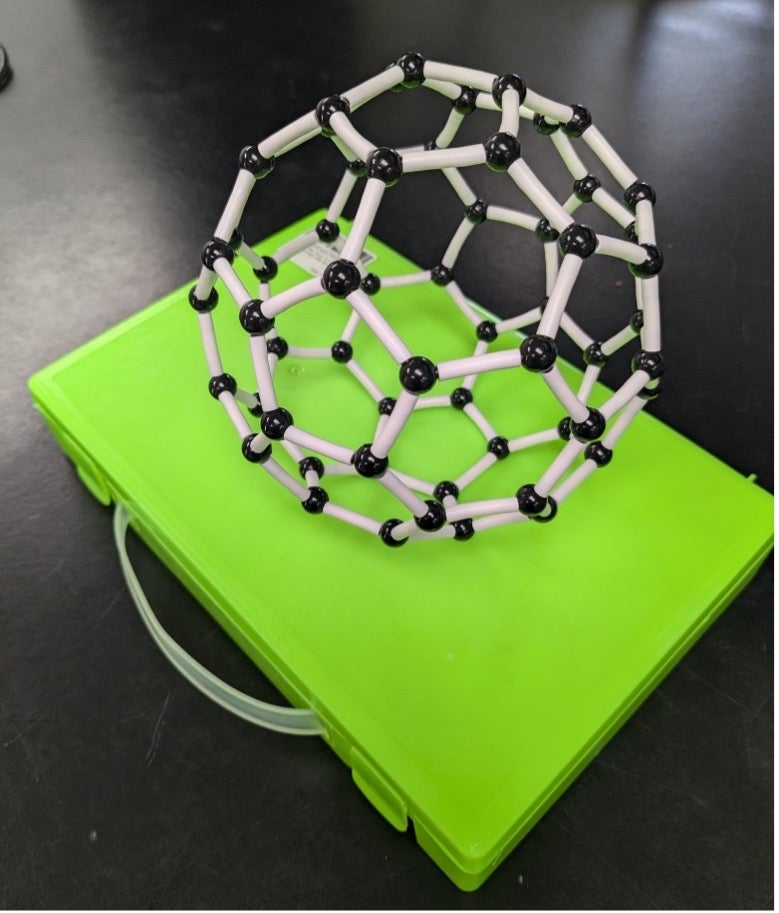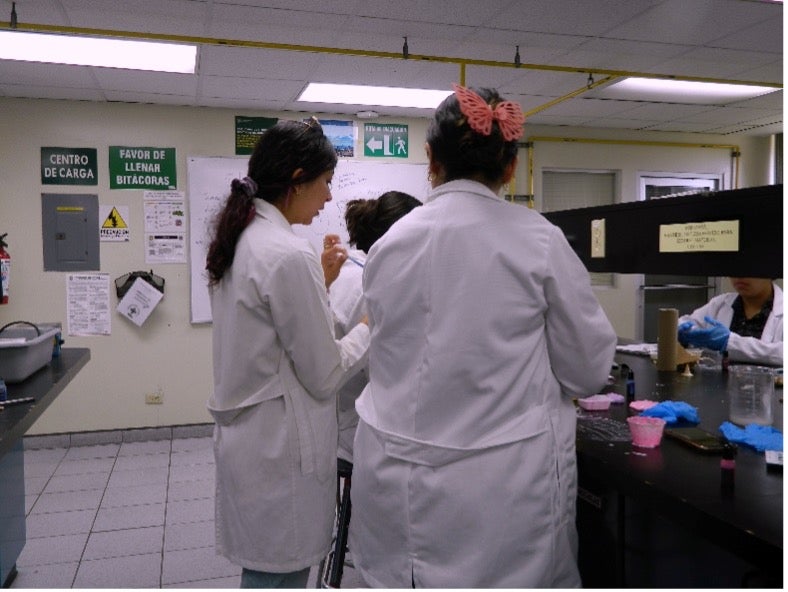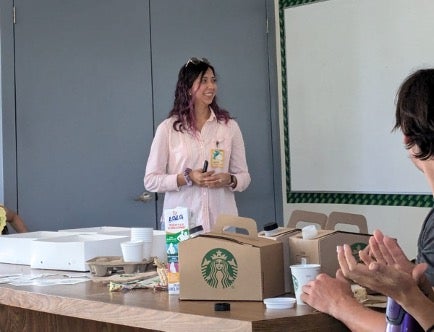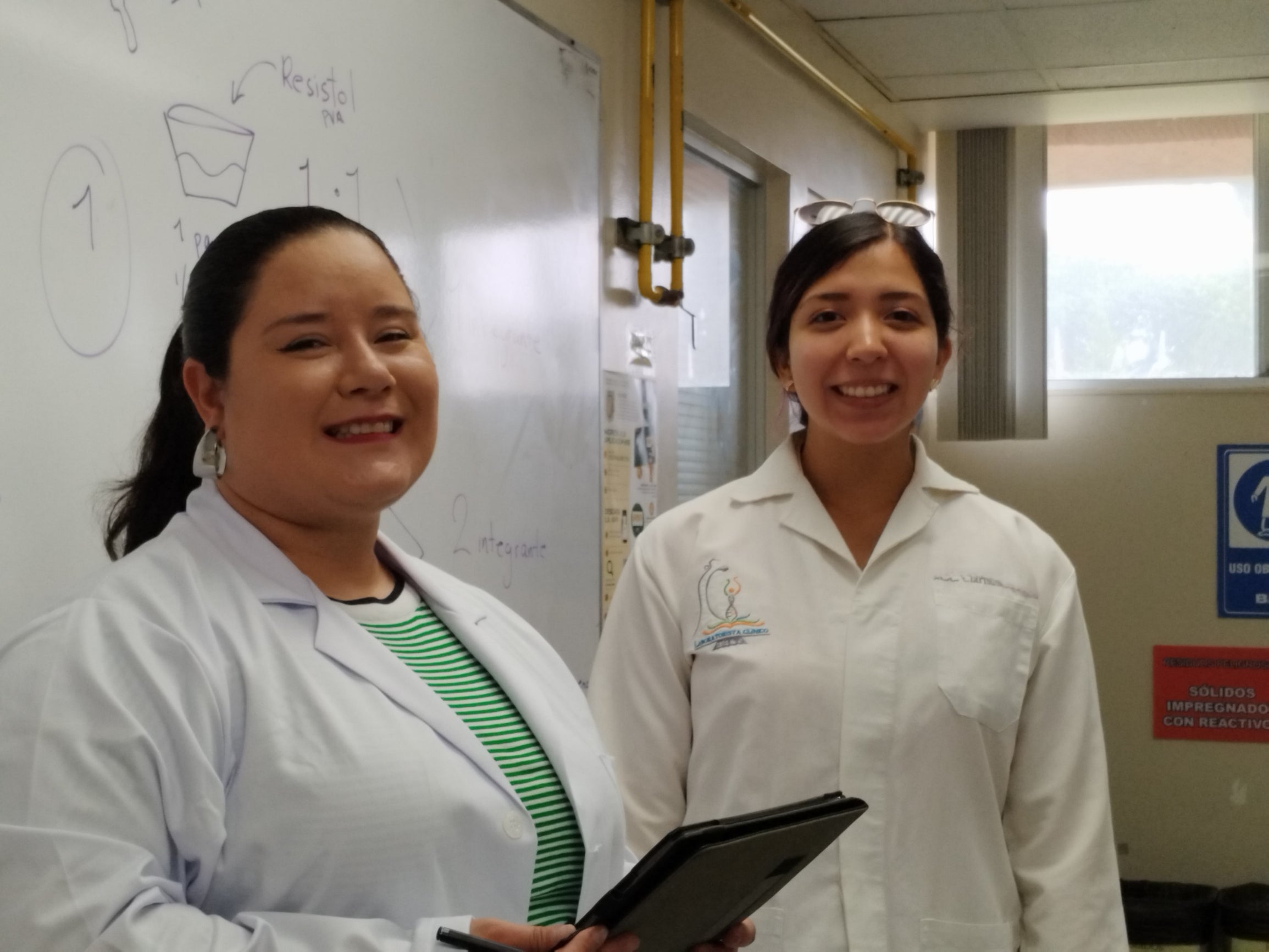What is Clubes de Ciencia Mx?
Clubes de Ciencia Mx (Science Clubs Mexico) is a non-profit organization that organizes one-week, intensive STEM workshops across Mexico for high-school and college students. These workshops don’t require any prior knowledge—just a passion for science! The initiative aims to bridge the gap for underrepresented groups in STEM, providing more education in high impact STEM topics and sharing opportunities.
Every summer, these clubs take place in eight cities across Mexico: Mérida, Monterrey, Oaxaca, Xalapa, Ensenada, Chihuahua, Guadalajara, and Guanajuato. For PhD students, postdocs, and even professors, it offers an incredible opportunity to design and lead a workshop. Applications typically open in January each year. For more information, visit: https://clubesdeciencia.mx/.
My Experience as an Instructor
During my undergraduate years, I attended two workshops organized by Clubes de Ciencia, and my instructors were PhD students from both the U.S. and Mexico. It was an incredible experience that motivated and inspired me. Their mentorship, shared experiences, and encouragement played a significant role in my journey to pursuing a PhD, which I am now doing at Rice University.
When I started my PhD, I promised myself that I would one day return to Clubes de Ciencia as an instructor—and this year, I seized that opportunity!
Designing the Workshop
Clubes de Ciencia allows instructors the freedom to design and teach an intensive course on a topic they are passionate about. The workshops are typically co-taught by two instructors—one from the U.S. and one from Mexico—and can be conducted in either English or Spanish. Don't worry if you're not fluent in Spanish; it’s not a requirement, though having some knowledge of the language can help.
I was fortunate to be paired with Cinthya Ruiz, a postdoc from the Centro de Investigación en Alimentos y Desarrollo (CIAD) in Hermosillo, Sonora. Although our fields of study—chemistry and materials science—were slightly different, we chose to focus our club on self-healing/innovative materials. The freedom to choose and structure our workshop topic was one of the most exciting parts of the experience.
We spent several months preparing for the club, which involved brainstorming ideas, planning experiments, and designing course content. It was both challenging and rewarding!
The Workshop Week: Overcoming Challenges and Embracing Learning
The workshop took place from August 5-10. When the date finally arrived, I was a mix of nerves and excitement. I had traveled from Houston to the border city of Ensenada, California, and the long journey added to my anxiety. On the first day, I was even mistaken for one of the students, which added a humorous touch to the situation but also made me even more nervous. However, meeting the students quickly calmed my nerves, and I became excited to work with such a diverse group.
We had a small group of eight students, ranging in age and background, which allowed for a very interactive and dynamic learning environment. Throughout the week, we faced challenges with materials, experiments, and topics, requiring us to improvise on several occasions. Fortunately, we received immense support from the organizational team and volunteers, which helped us navigate these hurdles.
One of the highlights of the week was an activity that Cinthya suggested called "What is your favorite material?" This simple question revealed just how passionate our students were about science. By the end of the week, they tackled a final project where they had to choose a material and propose an innovative solution to a real-world problem—a task that resembled selecting a thesis topic. Despite the short time frame, their projects blew me away!
Fun Fact: Matty the Club Mascot
We had a special mascot during our club—a buckyball that we built using a molecular model! We named it Matty (short for materials), and it quickly became an important and fun part of the club.

A Transformative Experience
Being an instructor at Clubes de Ciencia was an eye-opening and deeply gratifying experience. Watching the students' enthusiasm grow over the week pushed me to become more prepared each day, looking for answers to their questions and finding new ways to spark their curiosity.
Although I went there thinking I would teach and inspire, I ended up learning more from the students and gained immense inspiration myself. It reminded me of why I pursued a PhD in STEM: because our ideas have the potential to make a difference.
The experience was challenging and tiring, but it was absolutely worth it—and I would definitely do it again!

Another memorable moment was when I gave a talk about Rice University to share opportunities and the process of applying for a PhD, because I believe in sharing opportunities and opening the path for others. It was a huge surprise that two students from another club asked for a space to also share their own experiences and opportunities but undergraduate research. I was incredibly moved by their selflessness and drive. The message was there too “if I could do it, you can too. But I’ll make sure it’s easier for you.” Their enthusiasm was truly inspiring and reinforced the collaborative spirit that Clubes de Ciencia fosters.

Final Thoughts: Why You Should Get Involved
My goal in writing this blog is to raise awareness about the amazing work Clubes de Ciencia does to break barriers in science and inspire others, especially PhD students and postdocs in the U.S., to apply as instructors. I promise you—it will be a life-changing experience!
I would like to thank Clubes de Ciencia for their dedication to this mission, Professor Raul Hernandez (Chemistry Department, Rice University) for his guidance and encouragement, and Rice University’s Graduate and Postdoctoral Studies for their support.
If you’d like to learn more about becoming an instructor or have any questions, feel free to contact me!
About the author:
Astrid Campos Mata is from Monterrey, Mexico and is a current PhD Candidate in Materials Science and Nanoengineering. She got her B.S. in Chemistry in Universidad Autonoma de Nuevo Leon in 2020. Read more.
Further Reading:
Summer 2024: A Look Into My Time in Austin
Embracing Growth: My journey in the 2023-2024 Women in Leadership cohort
Two Ph.D. students selected to participate in Global Young Scientists Summit

